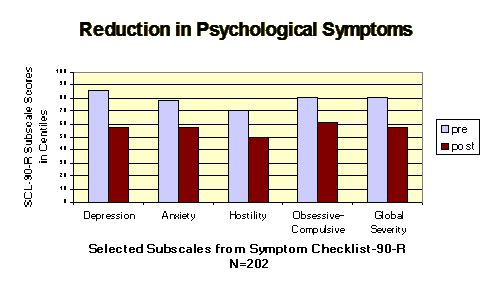Benefits of Mindfulness

Research
Mindfulness-Based Stress Reduction (MBSR) has been extensively researched in many settings since its launch in 1979 by Jon Kabat-Zinn, Ph.D. at the University of Massachusetts Medical Center. MBSR has been found to be a helpful adjunct to conventional treatments for a variety of medical and psychological conditions and symptoms, including:
- Heart disease
- Gastrointestinal distress
- Chronic pain
- Cancer
- High blood pressure
- Anxiety and panic
- Headaches
- Sleep disturbances
- Chronic fatigue
- Depression
- Skin disorders
- Addictions
The Insight Center carries on this tradition by conducting research to continually monitor the effectiveness of its stress reduction programs, and by collaborating with other organizations and individuals to evaluate ground-breaking applications of MBSR to:
- Immune system functioning/wellness in persons with HIV/AIDS
- Immune system functioning/wellness in women with breast cancer
- Psychological Well-Being, Cortisol, and Inflammation in Women Veterans
- Treatment of diabetes
- Employee well-being in a corporate setting
- "Stress hardiness" and "sense of coherence"

There are many potential benefits which flow from the practice of mindfulness, including more effective stress and pain management, increased immune response, and deep relaxation.
The majority of participants who complete The Insight Center's MBSR program report significant decreases in both physical and psychological symptoms, as well as improved ability to relax and deal with short and long term stressful situations. In addition to these reductions in symptoms, participants report a number of positive changes in their lifestyles and coping:
- 94% of participants report knowing how to take better care of themselves than before the program
- 93% of participants report being better able to handle stressful situations following the program
- 83% of participants have made healthy lifestyle changes as a result of the program
- 97% of those who complete the program state that they have drawn something of lasting value from it.
The charts below illustrate these results.


